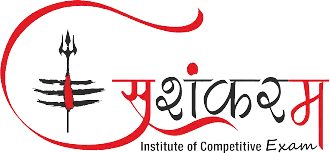Unlocking Success in Bank Exam Preparation: A Comprehensive Strategy Guide
Bank Exams
Bank exams in India are highly competitive and serve as a gateway to secure prestigious jobs in the banking sector. Whether you’re preparing for exams conducted by the IBPS (Institute of Banking Personnel Selection), SBI (State Bank of India), or other banking institutions, a well-planned strategy is essential for success. This guide offers a comprehensive approach to help you effectively prepare for bank exams and achieve your career goals.
Understanding the Bank Exam Landscape
Bank exams generally consist of multiple phases, including:
Preliminary Exam: Tests basic aptitude and reasoning skills.
Main Exam: Assesses deeper knowledge in subjects like Quantitative Aptitude, Reasoning, English Language, and General Awareness.
Interview: Conducted for qualifying candidates to assess personality traits and suitability for the banking role.
Essential Preparation Strategies
1. Familiarize Yourself with Exam Pattern and Syllabus
Exam Pattern: Understand the structure, marking scheme, and duration of each section.
Syllabus: Cover topics comprehensively including:
Quantitative Aptitude: Arithmetic, Data Interpretation, and Analysis.
Reasoning Ability: Verbal and Non-Verbal Reasoning, Logical Reasoning.
English Language: Grammar, Vocabulary, Reading Comprehension.
General Awareness: Current Affairs, Banking Awareness, Economic News.
2. Create a Structured Study Plan
Assess Your Strengths and Weaknesses: Identify areas that need improvement and allocate more time to difficult topics.
Set Realistic Goals: Break down the syllabus into manageable chunks and set achievable weekly and monthly targets.
Allocate Time Effectively: Balance between subjects and dedicate sufficient time for revision and mock tests.
3. Utilize Resources Wisely
Study Materials: Refer to standard textbooks, online resources, and previous years’ question papers.
Online Platforms: Utilize websites and mobile apps offering mock tests, quizzes, and study materials.
Coaching Institutes: Consider joining reputable coaching institutes for structured guidance and practice.
4. Practice Regularly
Mock Tests: Take full-length mock tests regularly to simulate exam conditions and improve time management.
Section-wise Practice: Focus on improving accuracy and speed in each section through targeted practice.
Review and Analyze: Analyze your performance in mock tests to identify strengths and weaknesses. Adjust your study plan accordingly.
5. Develop Time Management Skills
Exam Strategy: Learn to prioritize questions based on difficulty level and maximize your score within the allotted time.
Practice Time-bound Sessions: Use techniques like the Pomodoro Technique to improve focus and efficiency during study sessions.
6. Enhance General Awareness
Current Affairs: Stay updated with recent events through newspapers, magazines, and online portals.
Banking Awareness: Study banking terminology, functions of RBI (Reserve Bank of India), and recent developments in the banking sector.
7. Improve English Language Proficiency
Reading Comprehension: Practice reading passages and answering questions to improve comprehension skills.
Grammar and Vocabulary: Enhance language skills through regular practice and learning new words.
8. Stay Healthy and Motivated
Maintain a Balanced Routine: Eat nutritious meals, exercise regularly, and ensure adequate sleep.
Stay Positive: Maintain a positive attitude throughout your preparation journey. Surround yourself with supportive peers and mentors.
Conclusion
Success in bank exams requires dedication, discipline, and a strategic approach. By understanding the exam pattern, creating a structured study plan, utilizing resources effectively, and practicing consistently, you can significantly enhance your chances of cracking the exam. Remember, perseverance and continuous improvement are key to achieving your goals in the competitive banking sector. Good luck!

